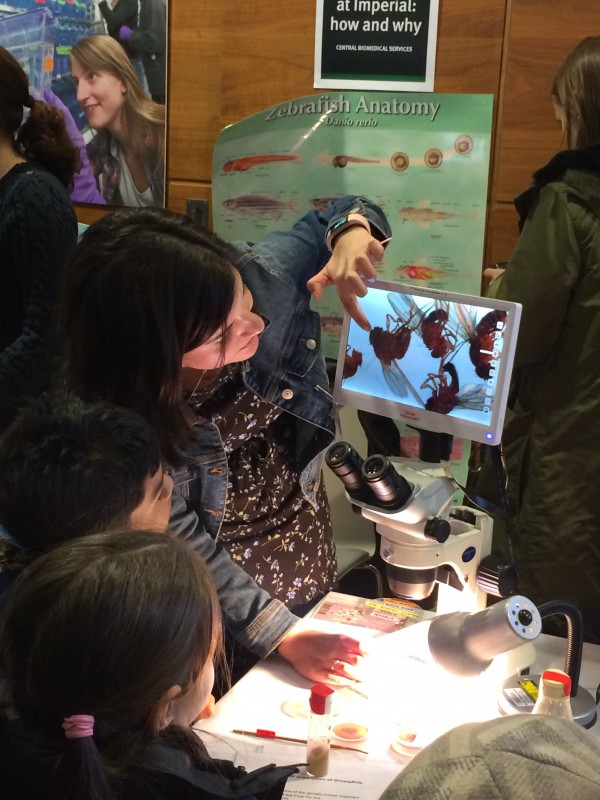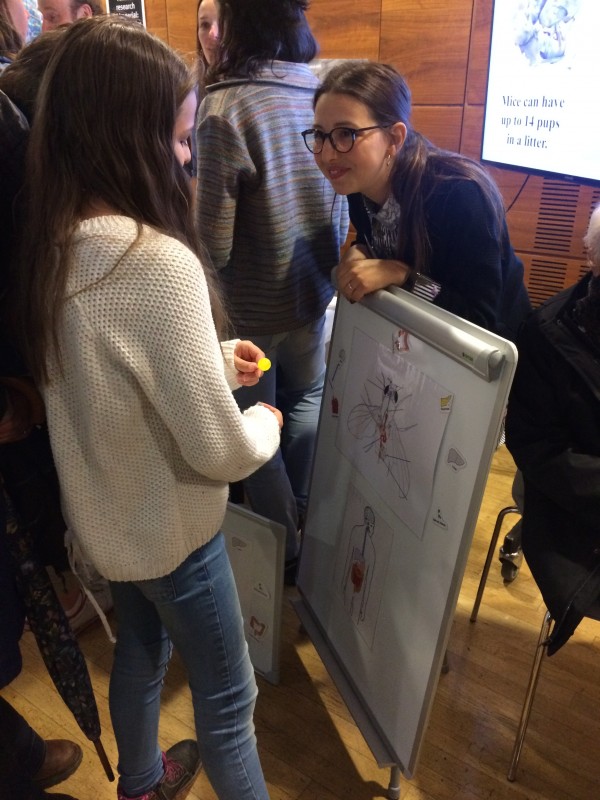By Sophie Arthur
June 1, 2018
Time to read: 3 minutes
 The 7th annual Imperial Festival took place over the weekend of 21-22 April 2018 at the College’s South Kensington campus. Over 20,000 members of the public flocked to the site over the course of the weekend. The festival draws in an eclectic audience, from families with young children to prospective students, school groups, retired researchers, professors and Imperial alumni. The exhibitors are just as diverse, taking guests on a journey of discovery through the cutting-edge research taking place across Imperial College campuses.
The 7th annual Imperial Festival took place over the weekend of 21-22 April 2018 at the College’s South Kensington campus. Over 20,000 members of the public flocked to the site over the course of the weekend. The festival draws in an eclectic audience, from families with young children to prospective students, school groups, retired researchers, professors and Imperial alumni. The exhibitors are just as diverse, taking guests on a journey of discovery through the cutting-edge research taking place across Imperial College campuses.
This year a team of scientists from the MRC LMS spoke to the public about their favourite model organism, the fruit fly Drosophila melanogaster, on the National Centre for the Replacement, Refinement & Reduction of Animals in Research (NC3Rs) stand. The team consisted of Christopher and Laura, Gut Signalling and Metabolism, Cecilia and Laura Metabolism and Cell Growth, and Lucie, Redox Metabolism.
“Throughout the day we shared why the fly is such a useful tool in translational research, generating leads that allow more targeted experiments to be carried out in mammals, as well as in vitro alternatives to be developed.” – Christopher Studd
Visitors to the NC3Rs stand, located within the Curiosity Zone, were treated to a microscopy session where they learnt about the life cycle of the fly and how its short length makes for quick experiments. Also, on display were a range of genetic markers – the physical traits that researchers use to easily track genetic inheritance from one generation to the next.
A game of ‘pin the organ on the fly’ highlighted the similarities between ourselves and Drosophila at an anatomical level, and attendees were excited to discover that approximately 61% of genes involved in human disease have an equivalent in the fly! Learning how this genetically tractable model is used to study metabolism, cancer and aging at the LMS, one curious visitor commented “I’ll have a newfound respect next time I see a fruit fly in my compost bin!”
 Other interactive activities included a quiz with weird and wonderful facts about Drosophila and visitors were treated to stories of how some well-known mutants came by their names. Amongst these were ‘Cheap date’, a fly that cannot break down alcohol properly, ‘Groucho Marx’, a moustachioed fly (yes, even the females) and Tin man, a Wizard of Oz inspired fly with no heart.
Other interactive activities included a quiz with weird and wonderful facts about Drosophila and visitors were treated to stories of how some well-known mutants came by their names. Amongst these were ‘Cheap date’, a fly that cannot break down alcohol properly, ‘Groucho Marx’, a moustachioed fly (yes, even the females) and Tin man, a Wizard of Oz inspired fly with no heart.
Engaging the public made for a very busy and fulfilling day for all involved. Having the opportunity to interact with people of all ages and see their knowledge and enthusiasm grow was a great experience and one I would recommend to researchers and support staff alike. It also highlighted the importance of getting out of the echo chamber, using our passion and enthusiasm to inspire the next generation of scientists who will one day take over where we leave off.
Imperial College London featured our Drosophila stand alongside other highlights of Animal Research at the Imperial Festival 2018 in their recent article.
By Christopher Studd, lab manager, Gut Signalling and Metabolism